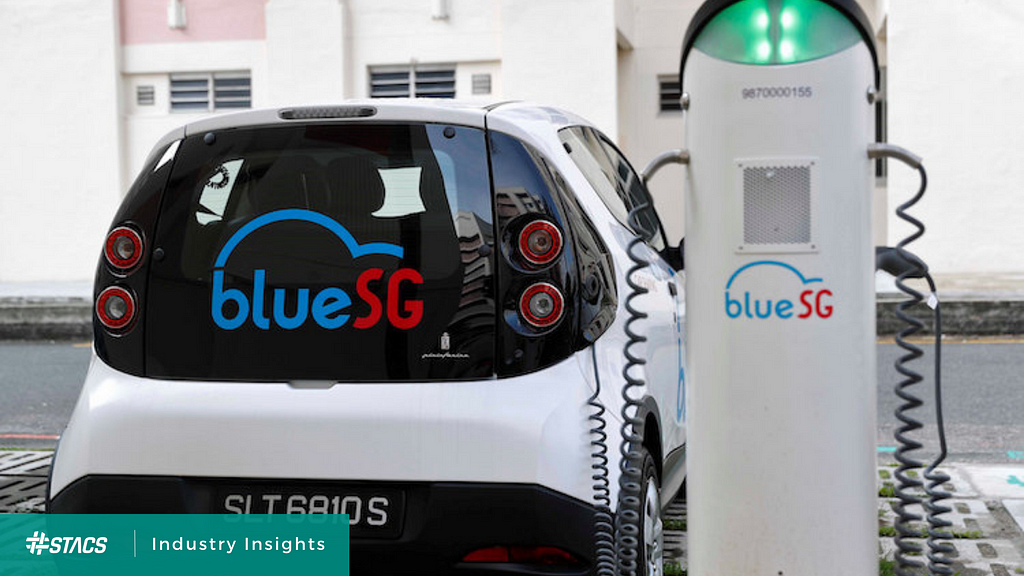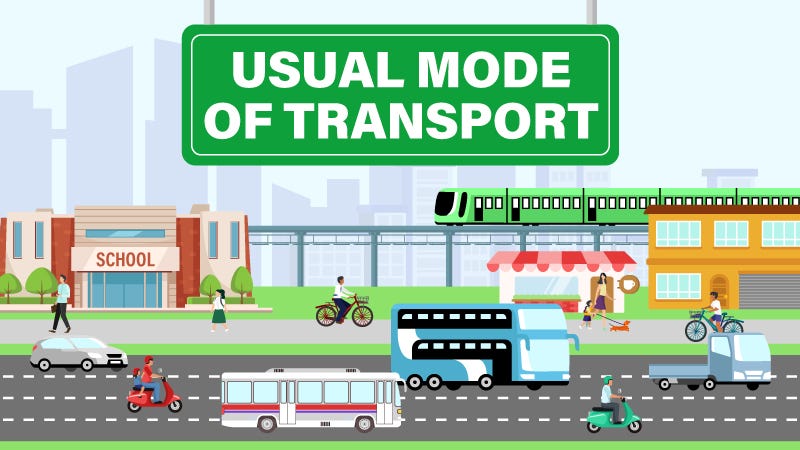
The Rise of Sustainability and Climate Control
Since the establishment of the United Nation’s 2030 Sustainable Development Agenda and the Paris Agreement, governments and members of society have been uniting on the frontier of sustainability. Singapore is no exception. In 2021, the Singapore government launched the Singapore Green Plan 2030, a movement that aims to advance sustainable developments nationwide for the next decade. This has led to downstream impacts on various sectors, one of which would be the transportation sector.
This article seeks to highlight the green endeavours of the stakeholders in Singapore’s transportation sector, the challenges faced by businesses, and what Singapore can do as a nation to advance its sustainability agenda.
Current Green Efforts in Place
The transportation industry is an infamous offender of greenhouse gases (GHG) and has been a long-standing concern of governments around the world. In fact, the issue is so severe that fossil fuels — whose byproduct is GHG — have been called out explicitly during COP26 as one of the key drivers of global warming.
The Singapore Green Plan 2030 that was released in 2021 envisions a Singapore that runs on cleaner, greener energy in the next decade. This would mean that the transportation sector in Singapore would need to make drastic cuts to its current GHG emission levels. Statistics wise, road transport currently makes up 97% of Singapore’s transport carbon footprint.
In response to this, the Singapore government has been coming up with green initiatives and strategies. These include being committed to gradually phasing out Internal Combustion Engine (ICE) vehicles by 2040 by encouraging the adoption of Electric Vehicles (EVs). On the installation front, the EV Common Charger Grant was launched in July 2021, which aims to accelerate the installation of EV chargers across the nation through co-funding. Furthermore, in September 2021, the Urban Redevelopment Authority (URA) and Land Transport Authority (LTA) began a pilot tender supporting the infrastructure for more than 600 EV charging ports in over 200 public carparks across Singapore. EV charging ports in over 200 public carparks across Singapore.
The government has also provided copious amounts of incentives for the purchase electric vehicles that include:
1) EV Early Adoption Incentive (EEAI): Up till 31 December 2023, fully electric car owners will receive a 45% off the Additional Registration Fee (capped at $20,000).
2) Enhanced Vehicular Emissions Scheme (VES): Up till 31 December 2022, rebates will be given to owners of eco-friendly cars that are graded and banded into different categories based on a vehicle’s carbon dioxide (Co2) emission. For example, an A1 Band is the highest grade and would mean that the vehicle qualifies for a $25,000 rebate.
3) Additional Registration Fee (ARF) Floor Reduction to $0: Up to 31 December 2023, the ARF floor will be $0 for all-electric cars, allowing for savings up to $45,000.
4) Cheaper Road Tax for Electric Cars: From 1 January 2023, fully electric and petrol electric cars in the 90–230kW power rating bracket enjoy up to 34% off road tax.

What Does This Mean for Transportation Businesses in Singapore?
Given the government’s regulatory push, transportation businesses in Singapore will need to pivot their focus towards a more sustainable frontier.
With EVs being the eventual goal for Singapore in 2030, a step in the right direction would be leveraging carbon credits to meet its sustainability goals. Carbon credits help offset carbon emitted from vehicles, therefore propelling a business’s decarbonisation strategy forward. According to the National Climate Change Secretariat, Singapore has the highest number of carbon credit services in the Southeast Asian region and is rapidly scaling up to meet increasing demand. With Verra and Gold Standard being industry benchmarks, carbon credits are now being purchased by large emitters in Singapore to offset carbon emissions in the transport industry.
Additionally, businesses in Singapore are encouraged to future-proof their operations and adopt values that are aligned with long-term sustainability goals. Banks are catalysing this change by offering sustainability-linked loans and green loans with lower interest rates to businesses that are looking advance their sustainability agendas.
In the case of the transport industry, sustainability agendas that businesses may adopt to transition to greener pastures include:
1) Progressively changing Internal Combustion Engine (ICE) vehicles to Electric Vehicles (EVs) or hybrid vehicles.
2) Identifying areas of improvement through more accurate understanding of current operational performance with the use of holistic data (both real-time tracking and historical reports).
3) Installing/ retrofitting energy efficiency devices.
4) Purchasing quality, data-backed carbon credits as an interim measure to offset carbon emissions.
The outcome of this would be a marked improvement in operational efficiencies, leading to cost-savings from more effective fleet management, and more importantly, the reduction in carbon emissions in support of net zero goals.
Given the government’s regulatory push, transportation businesses in Singapore will need to pivot their focus towards a more sustainable frontier.
With EVs being the eventual goal for Singapore in 2030, a step in the right direction would be leveraging carbon credits to meet its sustainability goals. Carbon credits help offset carbon emitted from vehicles, therefore propelling a business’s decarbonisation strategy forward. According to the National Climate Change Secretariat, Singapore has the highest number of carbon credit services in the Southeast Asian region and is rapidly scaling up to meet increasing demand. With Verra and Gold Standard being industry benchmarks, carbon credits are now being purchased by large emitters in Singapore to offset carbon emissions in the transport industry.
Additionally, businesses in Singapore are encouraged to future-proof their operations and adopt values that are aligned with long-term sustainability goals. Banks are catalysing this change by offering sustainability-linked loans and green loans with lower interest rates to businesses that are looking advance their sustainability agendas.
In the case of the transport industry, sustainability agendas that businesses may adopt to transition to greener pastures include:
1) Progressively changing Internal Combustion Engine (ICE) vehicles to Electric Vehicles (EVs) or hybrid vehicles.
2) Identifying areas of improvement through more accurate understanding of current operational performance with the use of holistic data (both real-time tracking and historical reports).
3) Installing/ retrofitting energy efficiency devices.
4) Purchasing quality, data-backed carbon credits as an interim measure to offset carbon emissions.
The outcome of this would be a marked improvement in operational efficiencies, leading to cost-savings from more effective fleet management, and more importantly, the reduction in carbon emissions in support of net zero goals.
Stumbling Blocks to Green Transport

However, the road towards building a green transport nation is not without its fair share of roadblocks.
Firstly, the lack of transparency and accessibility in tracking a business’ sustainability actions creates an environment of distrust surrounding the green financing space, affecting Environmental, Social, and Governance (ESG) capital stewardship and mobilisation. Banks hold back on the financing of sustainability-linked loans (SLLs) and green loans because of their inability to track the business’ sustainability profile in a trustable and reliable manner. ESG data is in disparate and mostly non-digital systems in the transport sector, resulting in non-real-time disclosures that are occasionally conducted once or twice each year.
Furthermore, there is no certification body or sustainability reporting standard in this sector. This further exacerbates the problem surrounding the lack of evidence that stakeholders can acquire to prove that they are truly green. This creates difficulties in obtaining green financing, and therefore a negative cycle, where the lack of capital hinders the transport firms’ ability to embark on their sustainability agenda.
Light at the End of the Tunnel
An opportunity for change presents itself in the form of technological advancements. The marrying of technology and finance to deliver solutions to financial services signals a turning point in heralding a greener transportation industry in Singapore.
In line with Singapore’s 2030 Green Plan, the Monetary Authority of Singapore (MAS) has also launched Project Greenprint with industry partners in November 2021. Under Project Greenprint, the MAS launched a series of initiatives that harness the use of FinTech solutions to promote a green finance ecosystem, through helping to mobilise capital, monitor sustainability commitments, and measure impact, to overall bring about positive change to the ESG space.
One of these initiatives would be a blockchain-powered ESG registry. Developed by STACS, ESGpedia powers the ESG Registry of the MAS’s Project Greenprint and is live today with global institutional partners from both the financial and non-financial sectors. The availability of a common, standardized registry that aggregates both data disclosures obtained from businesses and ongoing project data from sectoral data platform partners, offers a two-pronged approach to reinforce trust in the green transportation space. It allows for green information to be stored in a more secure and efficient manner while ensuring relevancy of data through real-time data inputs and interoperability. Therefore, this helps transportation businesses more clearly demonstrate their sustainability agenda, and at the same time enable financial institutions to monitor and track the sustainability progress of the businesses in their portfolio.
While there still lacks a direct solution to address the lack of green certifications in transportation, the registry supports self-disclosures through partnerships with the likes of Carbon Disclosure Project (CDP), UNGC’s LowCarbonSG, etc. as an initial reporting tool for companies of all sizes. This functions as a good interim measure that helps to overcome limited certifications in the sector. Moreover, the ESG registry, ESGpedia, offers transparency on the transactions and retirement of carbon credits that can be tagged to granular holistic project information, therefore propelling a business’s strategies toward net zero goals.
Additionally, the launch of the Electric Vehicle Accelerator programme rewards operators of EV fleets and charging points with carbon credits, further encouraging the transition to EVs and moves Singapore towards a greener transport system.
What We Envision…
The future that we envision for Singapore’s transport industry is one that leverages on technology and quality data to spearhead sustainability. This will expedite commitments to achieving 80% reduction in carbon emissions by 2030 in accordance with the Green Plan 2030. With FinTech galvanising these initiatives led by the MAS under Project Greenprint, and collective efforts from stakeholders in the transport industry, it will not take long before these aspirations become a reality.




